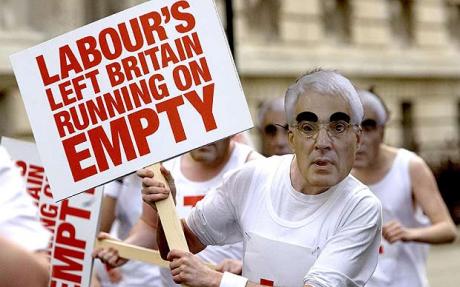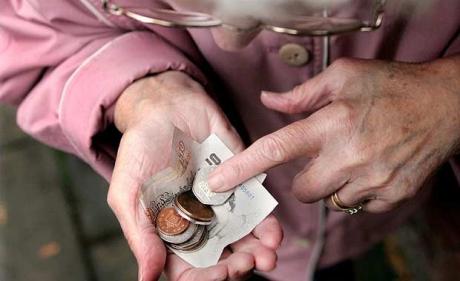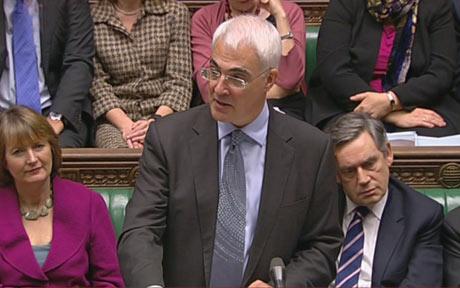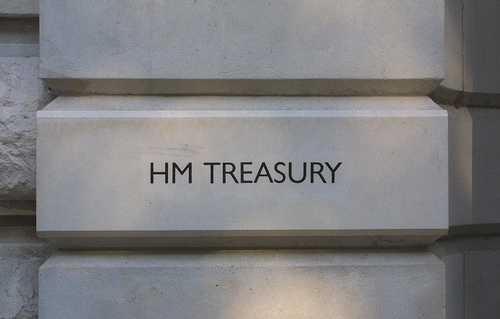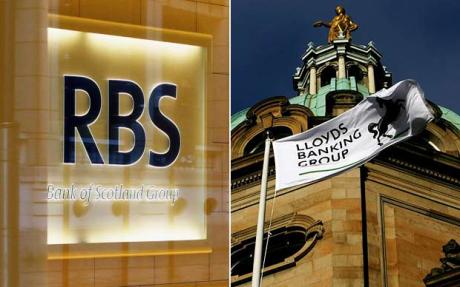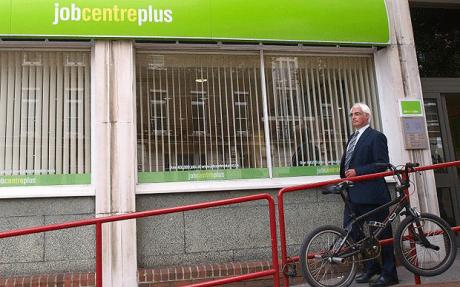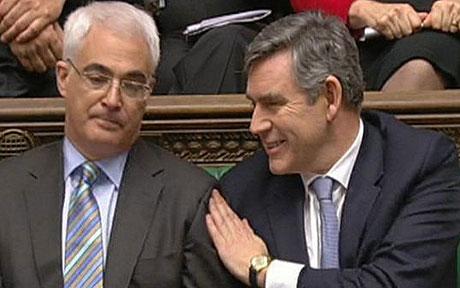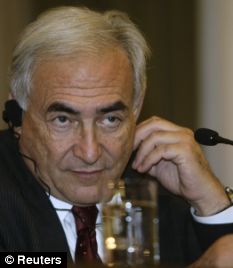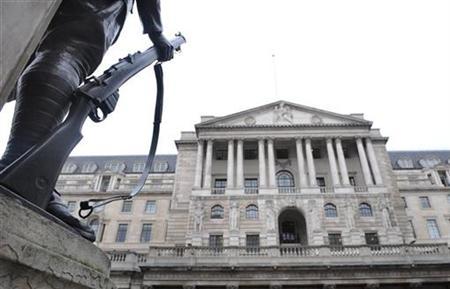The Bank of England and the government have created this mess:
Quantitative easing is creating money out of thin air or “printing money.”
Quantitative easing increases the money supply, creates inflation and devalues the currency.
Inflation is a hidden tax. Quantitative easing is nothing more than stealing from the people.
“By a continuing process of inflation, governments can confiscate, secretly and unobserved, an important part of the wealth of their citizens. There is no subtler, no surer means of overturning the existing basis of society than to debauch the currency. The process engages all the hidden forces of economic law on the side of destruction, and does it in a manner which not one man in a million is able to diagnose.“
– John Maynard Keynes
“In the absence of the gold standard, there is no way to protect savings from confiscation through inflation. … This is the shabby secret of the welfare statists’ tirades against gold. Deficit spending is simply a scheme for the confiscation of wealth. Gold stands in the way of this insidious process. It stands as a protector of property rights. If one grasps this, one has no difficulty in understanding the statists’ antagonism toward the gold standard.”
– Alan Greenspan
See also:
– Bank of England extends quantitative easing to £200 billion (Guardian)
– Bank of England calls unprecedented emergency meeting of economists (Telegraph)
– Pound Falls to Five Month Low as Bank of England Says Declines ‘Helpful’ (Bloomberg)
– Bank of England: Recession will be the worst in modern history (Telegraph)
– Bank of England to print extra 50 billion pounds (Reuters)
– Beware Bank of England’s monetary con trick (Financial Times):
Economists have another term to describe the monetization of government debt (=Quantitative easing). The history of “seigniorage” goes back to the debasement of the coinage under the Roman emperors. Seigniorage is really a tax on holders of money and government debt which is paid via inflation. When carried to excess, it leads to hyperinflation.
– The dangers of printing money: four lessons from history (Times Business)
– Bank of England wants to print more money (Telegraph)
– Bank of England sees slowdown deepening, prepares to deploy quantative easing (Financial Times):
Quantitative easing is aimed at increasing the money supply, getting banks to lend more, lowering interest rates and raising the level of inflation. (…and destroying the pound.)
And the UK has Gordon Brown, the savior, also known as debt creator, who will make sure that the UK will default on its debt and/or has to go through a currency crisis:
“A weak currency arises from a weak economy, which in turn is the result of a weak government.” – Gordon Brown
“There are two ways to conquer and enslave a nation. One is by the sword. The other is by debt.” – John Adams
– Britain Faces New Souvereign Debt Crisis As PIMCO Pulls Out
– Fitch warns: Britain and France risk losing their AAA rating
– Moody’s warns of ’social unrest’ as sovereign debt spirals … because of bankster bailouts
– UK taxpayers face £2 trillion unfunded pensions liability, more than £80,000 for every household
– Moody’s: Top US And UK Debt Ratings May ‘Test The Aaa Boundaries’
– Treasury Pre-Budget Report Warning: UK ‘Faces Decades of Debt’
– Morgan Stanley: Britain risks sovereign debt crisis in 2010
– OECD warning: Britain risks ‘debt spiral’
Prepare for the worst, because it’s coming!
Remember? Jim Rogers: ‘Sell any sterling you might have; It’s finished’
Update:
– For sheer gall, Brown posing as saviour of the middle classes takes the mouldy biscuit (Daily Mail):
There’s been nothing like it since the wolf dressed up as grandma in order to turn Little Red Riding Hood into pot-roast.
Gordon Brown now claims to be a champion of the middle classes. Apparently, only he can be trusted to look after their interests.
And there were millions of us thinking that he was, in fact, the unreconstructed arch-enemy of the middle classes and of everything they hold dear.
This is what the UK government and the BoE are doing:
“When a country embarks on deficit financing and inflationism you wipe out the middle class and wealth is transferred from the middle class and the poor to the rich.”
– Ron Paul
“Deficits mean future tax increases, pure and simple. Deficit spending should be viewed as a tax on future generations, and politicians who create deficits should be exposed as tax hikers.”
– Ron Paul
UK inflation jumped the most on record in December, fuelling fears that interest rates will have to rise sooner rather than later to keep prices in check.

Steve Bell, The Guardian
The sharp rise in the annual rate of consumer price inflation from 1.9pc to 2.9pc was driven by exceptional events in December 2008, as the VAT cut and high street discounting at that point were not repeated last month.
An increase in the price of petrol and new cars also drove the Consumer Prices Index (CPI) up last month, the Office for National Statistics said. Economists had expected a smaller rise in CPI to 2.6pc.
Howard Archer, chief UK economist at IHS Global Insight described the data as “a very nasty shock”.
It was the first time since May that inflation has risen above the Bank of England’s 2pc target, and economists predict inflation will rise above 3pc this month, reflecting the reversal of the VAT cut on January 1.
At that point Mervyn King, the Bank’s Governor, would be required to write a letter to the Chancellor, explaining why inflation was more than a percentage point above the target.
It comes at a difficult time for Britain’s consumers, who face the prospect of rising taxes, rising interest rates, and spending cuts as a fragile economic gets underway following the worst post-war recession.
The retail prices index (RPI) – which includes housing costs – rose even more sharply, to 2.4pc from 0.3pc in November.
Inflation in Britain has remained consistently higher than other countries during the recession, which economists partly attribute to the pound’s weakness, which has driven up the cost of foreign goods.
Read moreBank of England’s ‘nerves’ to be tested as inflation jumps most on record in December


